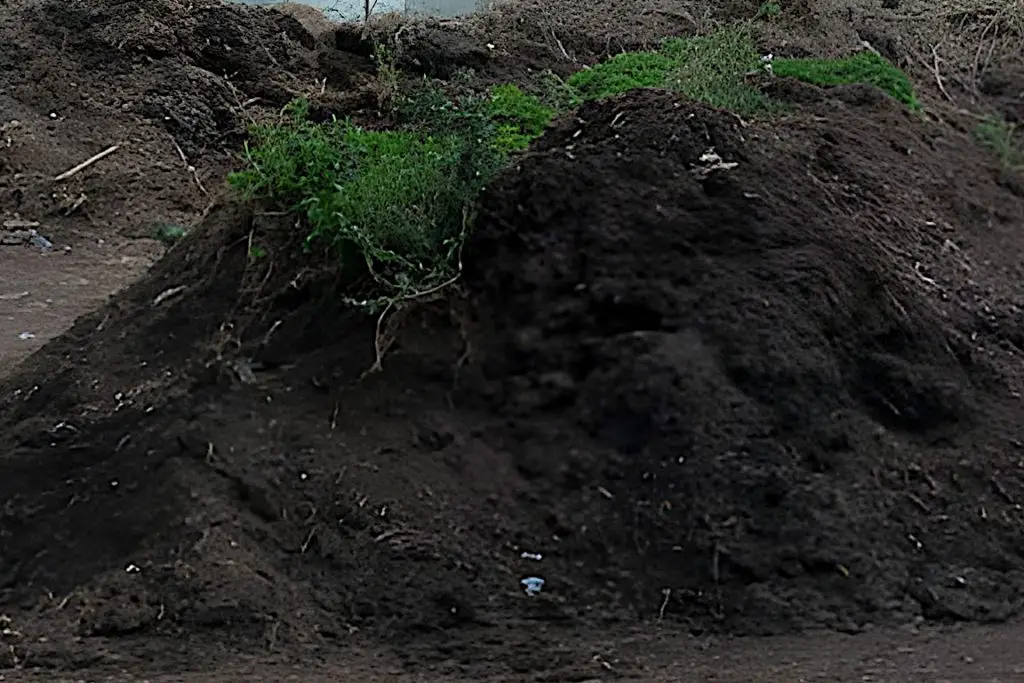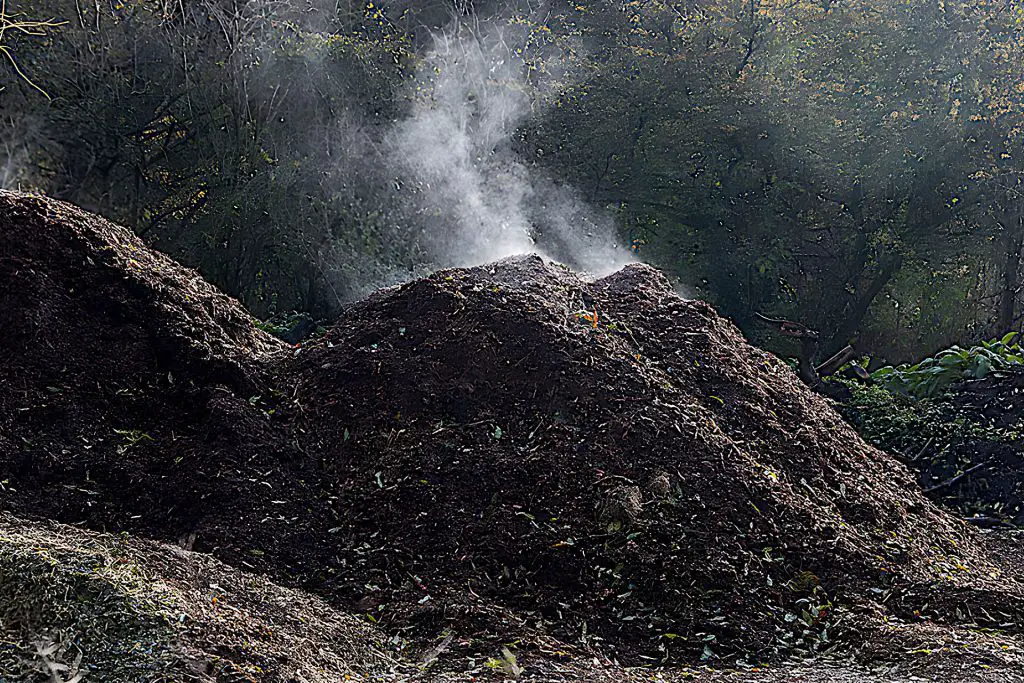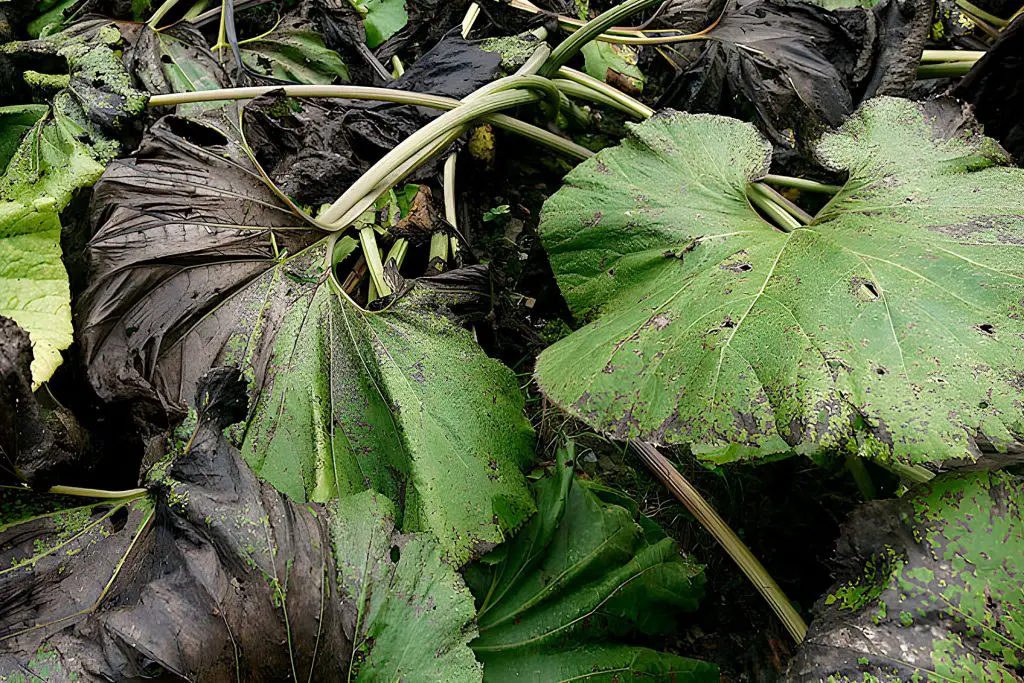What Will Happen if You Left the Compost Too Long?
Having spent several months watching your organic material gradually turn into compost, you are likely to want to start using it. Depending on your purpose and how you have composted, you might find that you have more than you need.
The apparent question what will happen if you leave the compost too long? If you have a lot of excess compost you are probably keen not to waste your efforts, so keeping it is likely to be your priority but in doing so, will it lose its usefulness, does it degrade over time?
The good news is that you can keep compost for many years and use it in your garden without issue. However, how good this compost remains at feeding your soil will largely depend on the conditions in which it is kept.
Will your compost go bad?

Composting is a very forgiving process, it is very difficult to get wrong because eventually, all organic material will decompose into usable soil. The composting process gives you some control over the process. It allows you to help shape the nutrients the finished compost will contain and determine to the length of time that the organic process takes to become finished compost.
Once it gets to the state of finished compost it won’t then ‘go bad’. it can easily be stored and should remain in good condition for a couple of growing seasons or longer. The real determiner of how long you can keep your compost is the way that it is stored. This is going to be easier with unopened shop-bought compost than with home-produced loose compost from a compost pile.
How Long Can Compost Be Kept
Understanding the composting process helps when determining whether compost is usable or not, whether being under-cured or degraded through age.
The decomposition process is an ongoing process. The microbes will continue the anaerobic digestion process, this is why existing finished compost is itself a great starter for new compost piles.
The decomposition process is a chemical reaction between carbon, nitrogen, oxygen, and moisture, that heats the material, generating microbes and bacteria to eat through the organic material. The speed of the process can be increased or slowed by varying the amounts of nitrogen, oxygen, and moisture. Without these elements, the decomposition process is slowed to a crawl almost becoming suspended. This is why you need to turn the compost pile to keep oxygen flowing and keep the pile moist.
It is these elements then, that are effectively agitators, that allow the microbes to thrive and the decomposition of the organic material to happen, turning it into compost. Otherwise, it can take a year or sometimes much more, depending on the organic material, to turn into compost which should give you an idea of how long compost can be kept.
Without the agitators of oxygen and moisture, the process grinds to a halt so, if you can stop the decomposition process when the compost has fully cured into finished compost, you can keep it for years and years.
If however, the oxygen and air are still present when you have finished compost then the decomposition remains an ongoing process. The microbes will continue the anaerobic digestion and the nutrients will gradually leach out of the pile. The nitrogen will react with the oxygen in the air, releasing as a gas, and together with other minerals, the nutrients gradually leach away.
What Happens when Finished Compost Has Been Left Too Long?

The answer is not a lot. In terms of feeding your plants, it may still be able to provide some nutrients to the soil, such as phosphorous, which takes longer to dissipate than nitrogen, but in essence, it has become a low nutrient amendment.
This can still be pretty useful. Depending on how fine the compost is you can grind it down or sieve it, mixing the fine material that is left with the topsoil. You might add some nitrogen-rich fertilizer in too to help with the nutrients that are missing.
Another option is to add a nitrogen-rich, zero phosphorous fertilizer and then use this as a compost fertilizer mix where needed in your garden.
One aspect to watch out for though is weeds. This is more likely to be an issue if the compost has been stored outside. Seeds that have been carried on the wind could have begun to grow and this could propagate unwanted weeds elsewhere in your garden if then used without treating.
Mix Old Compost with New Finished Compost
You can of course revitalize the old compost by mixing it with newly finished compost. The old compost will still have some nutrient value and by mixing it with fresh compost you can utilize it better and lessen the chances of adding excess phosphorous to the soil.
You could choose to mix it with fresh compost either newly home produced or commercial compost will work. You should look to mix on a 3:1 ratio, i.e. don’t add more than 25% in volume terms of old compost to the mix.
Nutrient Balance in the Soil
The important thing to remember is the purpose that the compost serves is to feed the soil nutrients and to help plants thrive. Compost, even if left for years, will never completely use all its nutrients so you can revive it by adding missing minerals with fertilizer or other organic material.
The key thing to look for is the levels of nutrients and keeping them in normal NPK (nitrogen, phosphorous, potassium) ratio ranges for your plants. Soil testing is something you should regularly do and this can be extended to your compost mix. There are plenty of inexpensive home soil test kits you can use. You need to be careful not to increase the soil’s nitrogen and phosphorous levels too much but it is unlikely that you will get to that point.
Home-Produced Compost vs Commercial Compost
In terms of being kept for a long time, commercial compost has an advantage over home-produced compost. You will notice with commercial compost that there isn’t a ‘sell-by date’ on the outside of the bags. This is because, provided that your excess bags of commercial compost remain sealed and are not torn or damaged in a way that will let air in, you can keep them for years and the compost within will remain good.
Unless you can seal your home-produced compost airtight it is to some extent inevitable that some air and moisture will get to the compost. This will allow the anaerobic digestion process to continue, causing the nutrients it contains to gradually leach out.
The chances are that you are unlikely to have bought truckloads of excess compost, but if there was a good deal available and you didn’t want to produce your own, then there is no reason you couldn’t buy and store it and use it over the next few years.
What to Do with Excess Compost
There are multiple ways that you can deal with excess compost. The most obvious thing is to use it if you can. This is probably easier if you have a lawn as you can use compost instead of fertilizer when feeding it in the fall. However, you also need to be careful not to use too much compost as this can have a detrimental effect on your soil and plants.
There are other options. Each of these is a good solution for dealing with your excess compost in good nutrient-rich condition.
Store It
Yes, you can store compost. It needs to be stored properly to avoid the nutrients leaching out of it. The ideal conditions to store compost are in a place where there is minimal oxygen, and little moisture. These are conditions that replicate shop-bought compost which comes in sealed bags.
Obviously, you are unlikely to have a bagging mechanism that can do this for home-produced compost. However, with a little thought, you can create conditions that are similar.
The first option would be to buy some sturdy plastic sacks, fill them and heat seal the top. While you are unlikely to be able to get all the air out before sealing, you will probably have removed enough for this bagged compost to be good for several years. If you don’t have a heat sealer try to seal it as best as you can, but you will probably want to use it within a year or two and it should easily last that long.
Another option is to build a sealed storage box with a release mechanism at the bottom, so you only have to open it to refill. Try to get as much air out as possible and if it is in a place where the temperature doesn’t vary enough to create condensation then it should be fine.
Sell It
Another option is to sell your excess compost. This might not be as difficult to do as you might think and, if you have a heat sealer for robust plastic sacks, then you will be even more salable. Local notices, Facebook market place and you will be surprised how quick it will go.
Even if you don’t have it bagged but only have it loose, it is more than likely that you will find that there are plenty of people willing to take it off your hands.
Use It as A Starter for A New Compost Pile

The final option is to use it as a starter for new compost. Freshly produced finished compost makes a great starter as there will be tens of millions of microbes looking for fresh organic material to start to decompose.
If cold composting, you could add it between your green and brown layers, which will help trigger a quicker start to the anaerobic digestion, with live microbes present being fed with oxygen, moisture, and gradually heat.
Summary: What Will Happen if You Left the Compost Too Long?
If you leave finished compost just sitting in the open air then you are going to get a degradation of the nutrients it contains gradually over time. In truth, you can probably leave it for a year or so and it is likely to still be perfectly usable as compost.
Even, though, if the compost is much older, although it might not be as effective as you will find that you can revitalize it in various ways such as mixing it with fresh compost or fertilizers.
If you know you have too much and don’t have adequate storage facilities, then you can also sell it. You will be surprised how easy this is to do.
